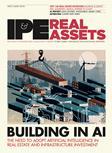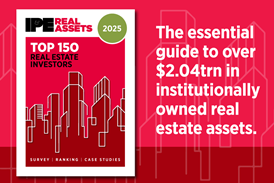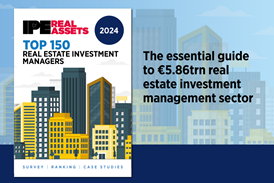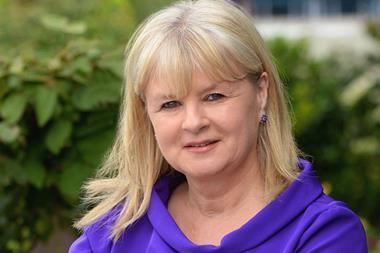This year’s PwC and Urban Land Institute (ULI) annual survey of the real estate industry shows general feelings of optimism for 2025 tempered by concerns about the economy and geopolitics.

The report covering Europe suggested that a “new normal is emerging”, with valuations stabilising and interest rates expected to be more predictable, but 85% of survey respondents identified geopolitics as the key issue of concern. It was published on 5 November, the same day that Americans went to the polls and, it would transpire, had elected Donald Trump to return to the White House.
The incoming US administration has implications for geopolitics, including conflicts in Ukraine and the Middle East, as well as the global trade tensions with China – and for US interest rates.
The ULI/PwC report said there was a recognition among investors that “European real estate sentiment is, in large part, still influenced by interest rate policies in the US and at home and shifting political order in Asia”.
We look at some of the implications of Trump taking office again. For real estate investors, the challenge is to begin making some assumptions on the macroeconomic effects – specifically, inflation, tariffs, interest rates, currencies and the potential ‘reshoring’ of manufacturing.
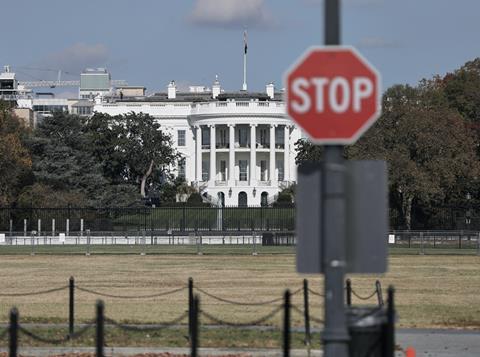
What might a return to the White House by Donald Trump mean for real estate’s anticipated market recovery?
“As a European real estate investor, our initial thought about Trump’s victory is, what the impact will be on the rate cycle,” says Louis-Simon Ferland, former partner at TPG and founding CEO of European real estate investment manager Boreal IM. “European real estate experiences the ripple effect of volatility in the US economy, notably on rates and inflationary pressures.”
Jim Gott, head of asset surveillance at Mount Street, expects Trump’s policies to “drive manufacturing back to US shores, creating demand in the industrial and warehouse markets”.
We also look at the trends of reshoring, onshoring and near-shoring, as the experiences of COVID-19 and concerns around geopolitics encourage the reorientation of global supply chains. On the whole, this is potentially positive for an already buoyant global logistics real estate sector.
Mexico could be a key beneficiary of this trend. Melinda McLaughlin, global head of research at Prologis, one of the biggest owners and developers of distribution warehouses, says the impact of nearshoring is felt most in Prologis’s Mexico business, which is seeing elevated demand for space, in contrast to many other areas where demand is back to pre-pandemic levels or even a little lower.
The growing prominence of geopolitical risk adds to the complexity facing real estate investors. The €5.84trn real estate investment management industry is positioning itself for a market recovery going into 2025. But while there is hope that the disruptive effects of spiking interest rates are in the past, the coming period of growth is fraught with challenges.
We explore these in our Top 150 Real Estate Investment Managers report, and ask: can the industry resume a level of growth in any way comparable to the years leading up to 2023?
As Peter Hobbs, managing director of private markets at Bfinance, says: “At the same time as the cyclical downturn, real estate groups have been struggling to grapple with structural changes in the underlying real estate market, often characterised as the ‘digital, demographic and decarbonisation’ transformations.”

James Seppala: “The dynamism within the real estate industry today is greater than it has been in the past”
As James Seppala, head of European real estate Blackstone, says – in the first in a series of investment manager case studies – today’s market environment calls for conviction, scale, data and an understanding that cost of capital has changed.
“The dynamism within the real estate industry today is greater than it has been in the past and is actually maybe more exciting than it has been in the past,” he says. “If you can stay ahead of it, then hopefully you can invest into that dynamism in a way that then allows you to produce strong returns.”
Data centres are one of the biggest focuses of Blackstone, and for PGIM. “We are very bullish on data centres, and that is a strategy that we’re pursuing globally,” says Cathy Marcus, co-chief executive and global chief operating officer at PGIM Real Estate.
Elsewhere, we look at how the boom in AI is pushing demand for power and prompting some of the biggest tech companies to explore the use of small modular reactors for energy generation. Such is the energy intensity of supporting the growth of AI, that Big Tech is looking to avoid the political and regulatory tensions that might arise from effectively undermining. global efforts to reach carbon net zero.


